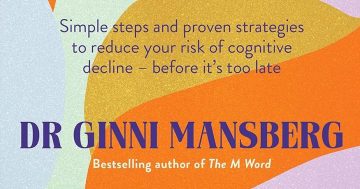Michelle Bakjac* says few people are comfortable with constant uncertainty — but that is what most of us will have to deal with in the weeks and months ahead.
 It has been an interesting year and uncertainty has become our new normal.
It has been an interesting year and uncertainty has become our new normal.
When we first glimpse uncertainty, our fear centre tends to take over and our negativity bias focuses on all the potential threats that could happen.
On the bright side, if you know the right tricks, you can override your brain’s irrational tendencies and handle uncertainty much more effectively.
In a recent study, a neuro-economist imaged subjects’ brains as they were forced to make increasingly uncertain bets.
These are the same kind of bets we’re forced to make on a regular basis in the workplace.
The less information the subjects had to go on, the more irrational and erratic their decisions became.
You might think the opposite would be true — the less information we have, the more careful and rational we are in evaluating the validity of that information.
Not so. As the uncertainty of the scenarios increased, the subjects’ brains shifted control over to the limbic system.
This is the place where emotions, such as anxiety and fear, are generated.
This mechanism, which hasn’t evolved since we came down from the trees, can be a hindrance to us today where uncertainty rules supreme.
Our current environment means that we are having to learn to be a lot more agile and adapt to what is going on in our larger world.
We also have to manage what is happening in our smaller world — relationship issues, job changes and many other life-changing moments.
These moments are often defined by how we actually react or respond.
So how do we manage uncertainty?
Soothe your emotional response
The limbic system responds to uncertainty with a knee-jerk fear reaction, and fear will often inhibit good decision-making.
If we learn to spot this fear as soon as it arises, we can gain control of it before it takes hold.
Once you are aware of the emotion, you can start to label all the irrational thoughts / beliefs holding that fear in place.
Once the fear is under control, you can focus more rationally on the information given and get on with managing the process.
Believe in yourself
You have been dealing with uncertainty all your life. You’ve got this.
Give your brain a bit of a leg up and allow it to consider the skills you have to manage what’s in front of you.
Positive thoughts will enable you to refocus your attention.
When you’re stressing over a tough decision and your mind is flooded with negative thoughts, this can be a challenge.
In these moments, think about your day, and identify one positive thing that happened, no matter how small.
The point here is that you do have something positive that you’re ready to shift your attention to when your thoughts turn negative due to the stress of uncertainty.
Embrace what you can and can’t control
Everyone likes to be in control.
In fact, control is the cornerstone of developing mental toughness.
What we don’t want to do is see everything that you can’t control or don’t know as a personal failure.
There is no need to paint any situation as better or worse than it actually is.
What we really can control is the process through which we reach our decisions.
Step up to the plate and acknowledge: “Here’s what I don’t know, but I’m going forward based on what I do know”.
Progress over perfection
Analysis paralysis can just get you booged down.
You might make a mistake along the way, but that’s a lot better than standing still.
When perfection is your goal, you’re always left with a nagging sense of failure, and you end up spending your time lamenting what you failed to accomplish.
You should be enjoying what you were able to achieve.
Don’t dwell on problems
Where you focus your attention determines your emotional state.
When you fixate on the problems that you’re facing, you create and prolong negative emotions and stress, which hinders performance.
When you focus on actions to better yourself and your circumstances, you create a sense of personal efficacy that produces positive emotions.
No ‘What if?’
What if? statements throw fuel on the fire of stress and worry, and there’s no place for them once you have good contingency plans in place.
Things can go in a million different directions, and the more time you spend worrying about the possibilities, the less time you’ll spend focusing on taking action.
What if? will only take you to a place where you don’t want, or need, to go.
When all else fails, just breathe
You have to remain calm to make good decisions in the face of uncertainty.
Training your brain to be able to calm itself will allow it to focus on higher level thinking.
So, make time to close the door, put away all other distractions, and just sit in a chair and breathe.
*Michelle Bakjac is an Adelaide-based psychologist, organisational consultant, coach, speaker and facilitator and a Director of Bakjac Consulting. She can be contacted at [email protected].
This article first appeared on the Bakjac Consulting website.











